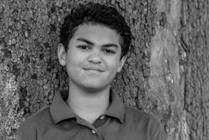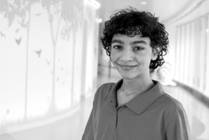Search Results
Viewing: 1-10 of 13 | All

Condition
Feeding Disorders
Feeding disorders are characterized by extreme food selectivity by type, texture, brand, shape or color.

Condition
22q Deletion Syndrome
22q11.2 deletion syndrome, also known as DiGeorge Syndrome, is a condition where there is a small amount of genetic material missing (a microdeletion) on the long arm (the q arm) of chromosome 22. 22q has the potential to impact every system in the body and can lead to a range of health issues.

Condition
Paradoxical Vocal Cord Dysfunction (PVCD)
With Paradoxical Vocal Cord Dysfunction (PVCD), the vocal cords close together, or constrict, when a person inhales, leaving only a small opening for air to flow into the windpipe.

Condition
Williams Syndrome
Children born with Williams Syndrome have many symptoms, including unique facial features, issues with their heart or blood vessels (cardiovascular), and cognitive or developmental delays.

Condition
Swallowing Disorders
A swallowing disorder can result in aspiration or food “going down the wrong pipe.” Aspiration can place a child at a higher risk for respiratory/pulmonary issues.

Condition
Vocal Fold Nodules
Vocal fold or vocal cord nodules are small, non-cancerous growths on your child’s vocal cords. They are often caused by voice abuse. Over time, your child’s repeated misuse of the vocal folds results in soft, swollen spots on each vocal fold.

Condition
Bronchopulmonary Dysplasia (BPD)
Bronchopulmonary Dysplasia (BPD) is a term used to describe long-term breathing problems for premature babies. BPD involves abnormal development of the lungs, and in the most severe cases the lungs are scarred and inflamed. Symptoms can include respiratory distress and assisted breathing.

Condition
Sialorrhea (Drooling)
Sialorrhea, also known as hypersalivation or drooling, means excessive saliva flow. Anterior sialorrhea is when patients have forward spillage of saliva from their mouths onto their faces and clothes. Posterior sialorrhea is when patients have spillage of saliva from their mouths down their airways.

Condition
Atypical Teratoid/Rhabdoid Tumor (ATRT)
An atypical teratoid/rhabdoid tumor (ATRT) is a fast-growing tumor that grows in the brain or spinal cord. ATRTs usually occur in isolation, meaning the tumor does not spread to other parts of the body.

